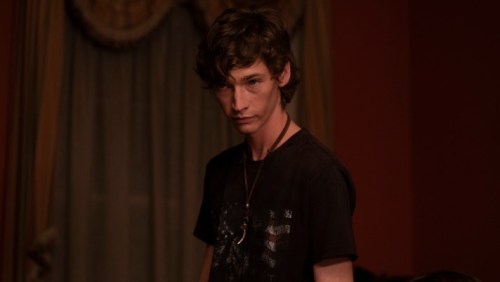Certain Actor As A Protagonist
Certain Actor as a Protagonist <<< Certain Actor as an Antagonist


(Thomas from: The Maze Runner ((top)) & Stiles Stilinski from: Teen Wolf ((bottom)) played by Dylan O'Brien)


(Aris Jones from: The Maze Runner ((above)) & Isaac from: A House on the Bayou ((bottom)) played by Jacob Lofland)
-
 niounyblouny liked this · 11 months ago
niounyblouny liked this · 11 months ago -
 blossombambi liked this · 11 months ago
blossombambi liked this · 11 months ago -
 deathangelraven liked this · 11 months ago
deathangelraven liked this · 11 months ago -
 lvrsparadise liked this · 11 months ago
lvrsparadise liked this · 11 months ago -
 iys-cloud liked this · 11 months ago
iys-cloud liked this · 11 months ago -
 sevenratz liked this · 11 months ago
sevenratz liked this · 11 months ago -
 lumanan liked this · 11 months ago
lumanan liked this · 11 months ago -
 neahtrix liked this · 11 months ago
neahtrix liked this · 11 months ago -
 radstrangerdinosaur liked this · 11 months ago
radstrangerdinosaur liked this · 11 months ago -
 chaosmakeththeman liked this · 11 months ago
chaosmakeththeman liked this · 11 months ago
More Posts from Midnightfiremoon
Does anyone really talk about how different "Please Tommy, please" is in the movies than in the books?
In the movies, "Please Tommy, please" is Newt's beg for Thomas to take the necklace that had his note inside of it. Basically begging Thomas to take his last words, something to remember him by.
But in the books...
"Please Tommy, please" is a cry for mercy. A plead for Thomas to not let Newt fall into insanity. To end his suffering before he became a Crank past the Gone. He even wrote the "Kill me. If you've ever been my friend, kill me" note. He's been begging Thomas to kill him since the beginning of TDC.
It just hits differently in the books, man 😭
Exactly. Movie!Newt died by accident, there was a possibility of salvation. Book!Newt was never going to be saved and Thomas probably never fully accepted that reality, which is why he tried so hard to not kill him. That was really painful to read tbh. The movies were good though, it was another sense of pain because instead of being sad that he could never have lived, we were sad that he accidentally died right before Brenda could save him.
Does anyone really talk about how different "Please Tommy, please" is in the movies than in the books?
In the movies, "Please Tommy, please" is Newt's beg for Thomas to take the necklace that had his note inside of it. Basically begging Thomas to take his last words, something to remember him by.
But in the books...
"Please Tommy, please" is a cry for mercy. A plead for Thomas to not let Newt fall into insanity. To end his suffering before he became a Crank past the Gone. He even wrote the "Kill me. If you've ever been my friend, kill me" note. He's been begging Thomas to kill him since the beginning of TDC.
It just hits differently in the books, man 😭
I'm begging for my partner to have this mindset, please
I'm gonna marry a man with the coolest last name the world has ever seen

Lord bless our souls. I've only been here for five days and I don't think can make it to Thursday. It's too far away. I need it now, I'm like a feral dog 🥲
i need to know how many people had the same thought as i did a week ago..
"i don't think i'd like bridgerton, it doesn't seem like my kind of show"
and now, after binge watching and becoming polin-obsessed, you want to punch previous you in the face for that thought
I feel like we don't talk enough about the actual depth of the changes that happened to Alby when passing from the book to the movie. Like sure, he was mean in the books and nice in the movies, but it goes much deeper than that. In the book he represented the universal issue of trying to measure up to someone's standards and inevitably failing, and then in the movie he was just... there.
Because in the book we have that first scene the "if you ain't scared you ain't human" scene, where Alby progressively makes everything worse and worse and worse with every word that come out of his mouth. But the thing is, he's trying to fulfil the expectations that everyone places on him the moment he becomes a leader. He's genuinely trying and I'm too lazy to get the book and quote actual fragments that you can analyse (I might do it later if anyone wants me to), but he tries a bunch of stuff to put Thomas at ease, only he has a short temper and doesn't think before he speaks and it's been under a month since one of the people closest to him died (because Alby had to have been the second in command before and there's no way he wasn't close to Nick).
But in the movie, he has no reason to not be an exemplary leader and role model, so all the complexity and representation of a constant part of being human is erased and we're just left with a cookie-cutter archetype of the leader who's little more than a plot device and I find that sad.
